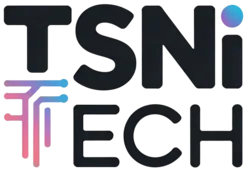Understanding Facebook Marketplace Code Words – A Guide
What are Facebook Marketplace Code Words?
Facebook Marketplace code words are specialized terms that buyers and sellers use to communicate specific meanings beyond their surface appearance. These linguistic shortcuts create an insider language for niche products or facilitate specialized transactions—understood only by certain community members who share the knowledge.
More troubling is their deliberate use to circumvent Facebook’s content moderation systems. Sellers deploy alternative terminology to list prohibited items or services without triggering automated detection. They craft seemingly innocent phrases that carry secondary meanings within specific communities.
Recognizing these code words helps with safely navigating Facebook Marketplace. Recognizing suspicious terminology helps users identify risky listings and avoid scams or illegal transactions. Yet the constantly evolving nature of these terms presents an ongoing challenge to platform security.
Common Code Words and Their Meanings
Facebook Marketplace uses its own unofficial language as users discover creative ways to communicate about products and services. Many code words serve as harmless shorthand for legitimate transactions. Others, however, serve more questionable purposes. Understanding these terms can help you spot potential red flags before they become problems.
Code words on Facebook Marketplace typically fall into distinct categories. Some represent community shorthand for popular items—’ISO’ (In Search Of) or ‘PPU’ (Pending Pick Up)—which streamline communication between buyers and sellers. Other terms may indicate attempts to circumvent platform policies or disguise prohibited items.
These code words aren’t static. They evolve as communities adapt to platform rules and detection methods. This makes creating a complete list nearly impossible, as terms vary by region, interest group, and time period.
When browsing listings, remain alert to unusual terminology—especially when paired with prices that seem suspiciously low or vague product descriptions. Terms like ‘not for intended use’ or ‘collectors only’ may signal that a seller is attempting to bypass restrictions on certain products.
Context matters when interpreting potential code words. A term may raise suspicion in one listing but appear completely innocent in another. This variability makes it essential to approach unfamiliar terminology with healthy skepticism.
Code Words for Illegal Sales
On Facebook Marketplace, certain code words signal prohibited items, helping sellers evade detection by automated content moderation systems. These coded terms create a shadow language for transactions involving illegal goods—drugs, firearms, and other regulated items. Law enforcement has found large networks where thousands of people use specific terms to sell drugs while pretending to discuss normal items.
Common tactics to disguise illegal items include:
-
Using plant or gardening metaphors for marijuana products.
-
Referring to firearms with terms like ‘tools’ or ‘toys.’
-
Describing prescription medications as ‘candies’ or ‘beans.’
-
Using phrases like ‘for collection purposes only’ or ‘not functional’ for weapon parts to create plausible deniability.
Pricing itself can function as code. Unusually specific or seemingly random pricing—like $420 for what appears to be an ordinary household item—may signal hidden offerings. Similarly, listings that mention ‘meeting in person only’ or ‘cash preferred’ for low-value items might indicate the seller is attempting to conduct an off-platform transaction for prohibited goods.
The terminology evolves rapidly as Facebook’s detection systems improve, creating an ongoing back-and-forth between sellers and platform security. When browsing Marketplace, exercise caution with listings featuring unusual terminology, especially when combined with vague product descriptions or requests to continue conversations through encrypted messaging apps.
Code Words Related to Scams
Scammers on Facebook Marketplace use specific language meant to manipulate unsuspecting users. The most dangerous code phrase? A request for a “verification code”—typically a 6-digit number sent to your phone. This seemingly harmless request is really an attempt to intercept authentication codes for services like Google Voice, letting scammers make accounts using your name or take over your existing accounts.
Common red flags for scams include:
-
Urgent Language: Phrases like “must sell today” or “once-in-a-lifetime opportunity” pressure you into quick decisions.
-
Off-Platform Communication: Requests to use external apps like WhatsApp or text (“contact me directly for details”) remove Facebook’s protections.
-
Unusual Payment Methods: Pushing for non-protected payments like wire transfers, gift cards, or cash apps (“special price for cash app friends”).
-
Suspicious Shipping: Vague arrangements using terms like “special courier service” or “my personal delivery agent” often indicate items will never be sent.
When a seller’s communication contains multiple warning signs—urgency, requests for off-platform communication, unusual payment methods, and verification code requests—it’s almost certainly a scam. Remember: legitimate sellers rarely need verification codes from buyers and will conduct business transparently through the platform’s official channels.
The Role of Facebook’s Internal Lexicon
While users develop their own code words on Marketplace, Facebook itself uses its own technical language for its content moderation and platform security efforts. This technical vocabulary serves as the backbone for maintaining platform integrity and identifying potential threats.
The main tool is Blackhole—a critical service that automatically blacklists URLs, domains, and IP addresses associated with spam or malicious content. This tool acts as a first line of defense, preventing known bad actors from repeatedly exploiting the platform with new accounts or listings.
Another key component is CORGI (likely an internal acronym), which uses complex computer programs to identify patterns in user behavior across the platform. Unlike simple keyword filtering, CORGI analyzes complex behavioral signatures to detect coordinated manipulation attempts and unusual activity patterns that might indicate scams or policy violations.
These internal tools form part of a larger moderation infrastructure. Facebook deploys numerous other proprietary systems to analyze user interactions, flag suspicious content, and enforce community standards—operating largely invisibly to users.
Understanding the existence of this internal lexicon helps explain why some code words and tactics eventually stop working for bad actors. As Facebook’s systems identify patterns of misuse, they adapt to recognize even disguised attempts to circumvent rules. This creates constant competition between platform security measures and those attempting to exploit the marketplace for illicit purposes.
How to Protect Yourself from Scams on Facebook Marketplace
Stay safe by watching for common warning signs and following these steps:
-
Verify Seller Profiles: Check for established accounts with a reasonable activity history. Be wary of new profiles with minimal information.
-
Communicate On-Platform: Keep all conversations within Facebook Messenger. Scammers often try to move the conversation to other apps.
-
Never Share Verification Codes: Legitimate transactions never require you to share a 6-digit code sent to your phone. This is an attempt to hijack your accounts.
-
Use Secure Payment Methods: Use Facebook’s payment system or cash for in-person exchanges. Avoid wire transfers, gift cards, or payment apps with strangers.
-
Beware of “Too Good to Be True” Prices: Heavily discounted luxury or high-demand items are classic signs of a scam.
-
Meet in Safe, Public Locations: For in-person exchanges, choose a well-lit, public place, such as a police station’s designated “safe exchange zone.”
-
Trust Your Instincts: If a seller is pressuring you, has an inconsistent story, or makes you uncomfortable, walk away from the deal.
Reporting Suspicious Listings and Users
When you encounter suspicious listings or users on Facebook Marketplace—those who may be using code words for prohibited items or attempting scams—reporting them helps community safety. Facebook provides several straightforward methods to report concerning content.
To report a suspicious listing, locate the three dots (⋯) in the upper right corner of the listing and select “Report Listing.” You’ll then be prompted to choose a reason for your report: prohibited items, potential scam, or misleading content. Be as specific as possible when describing why you’re reporting the listing, especially if you’ve identified code words that suggest illegal activities.
To report a user, visit their Marketplace profile, click the three dots (⋯) and select “Report.” You can also report a suspicious conversation directly from the chat window by clicking the user’s name and choosing “Report.”
When reporting code word usage specifically, explain in the comments which terms raised your suspicion and why. This helps Facebook’s review team spot new code words appearing on the platform.
While Facebook doesn’t provide detailed updates, it reviews all reports and may remove listings, restrict accounts, or involve law enforcement. If you believe you’ve encountered illegal activity, consider also reporting it to local authorities.
Remember that reporting remains anonymous—the user won’t be notified who reported them. By actively reporting suspicious activity, you help make Facebook Marketplace safer for everyone.







